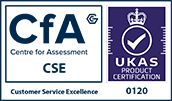Library statement on sensitive or harmful material
The University of Bradford aims to develop a fully inclusive working and learning environment, with equality, diversity and inclusion embedded at the heart of all we do. The University Library supports the university’s EDI and decolonisation strategies and is committed to provision of inclusive and diverse collections. We value knowledge and research from diverse sources, cultures and traditions, and seek to make all our users feel respected, supported and valued. Through Broaden Bradford’s Books initiative, our staff and students can help our aim to increase the diversity of library collections. For example, broadening the range of books available to support a more diverse curriculum, improving the representation of research from the Global South, and increasing the range of books by and about LGBTQIA+ people.
Harmful or sensitive material in the library or the catalogue
If you discover harmful language in the library’s catalogue records, or a book or other item that concerns you, please use this form to let the library know. Read on for more information about why this might happen and what we will do when you alert us.
Some materials that are part of our collections may be considered offensive. The Library strives to provide context for these items through descriptive records, and where considered necessary, attach a statement to the item that provides a warning about potentially sensitive content. We invite you to contact us if you have encountered a book or other library item that you consider to be problematic.
Reasons we might have items that may be racist, sexist, homophobic, or derogatory towards disabled people or other groups include (but are not limited to):
- their place in the history of their field,
- use for teaching or research on controversies in the subject,
- use for demonstrating society’s general attitudes at the time they were written, or
- because they were written by people affected by the issue concerned, who describe themselves or their activism in now-outdated ways.
There may also be entries in our library catalogue that may be considered offensive. We are committed to creating inclusive, anti-racist, non-derogatory bibliographic descriptions that accurately describe our holdings. However, we acknowledge that some of our bibliographic descriptions may contain racist, homophobic, transphobic, sexist, disablist, or otherwise derogatory and offensive language. In most cases, this language will be present in older bibliographic records that were created in years and decades past. We are dedicated to finding ways to mitigate use of harmful and offensive language in bibliographic descriptions in our catalogue and we invite you to contact us if you have encountered language you find to be hurtful, harmful or offensive.
Harmful or offensive language may appear for the following reasons:
- Some derogatory terms used to describe historically oppressed people have been reclaimed and used by authors and creators from those communities.
- Terms historically used by a community to describe themselves have fallen out of use or out of favour but were deemed acceptable at the time.
- We use Library of Congress Subject Headings to enable standardised searching and access across our holdings. LOC Subject Headings changes have to go through an extensive review, editorial and approval process and sometimes they can only be changed by legislative action, and some of these headings continue to use outdated language.
- We have transcribed information directly from the materials themselves.
We acknowledge that we are often describing communities of which we are not a part. We recognize our responsibility to describe our resources and their creators respectfully and carefully. We also recognise that we may sometimes fail and are dedicated to a process of constant reflection and improvement. We are pursuing actions to remediate these issues, including reviewing and correcting existing records and implementing better processes going forward. This process is complex and ongoing, but we are committed to this effort.
How to get in touch with us
If you discover harmful or offensive language in catalogue records, or are concerned about a book, please use this online form or email us to report it and suggest alternative language. We welcome your feedback.
Possible outcomes
Specific objections to materials will be addressed in accordance with this statement, and in consultation with the librarians and archivist responsible for the specified collections. Possible actions may include but are not limited to, the following:
- The identified materials remain available with no change;
- the identified materials remain available, but we review the catalogue record description with a view to amending offensive words;
- the identified materials remain available, but we add a note to a physical item to suggest caution in using it; or
- the provision of additional descriptive information to provide context for the materials in question.
In rare cases, removal of materials from access may be considered. However, the Library places an extremely high value on providing access and context. Therefore, this option may be considered only in exceptional circumstances, and usually when the item is not only offensive but also no longer useful for research.
This statement acknowledges the work and library policies of Emory University and The University of Wisconsin-Milwaukee.


